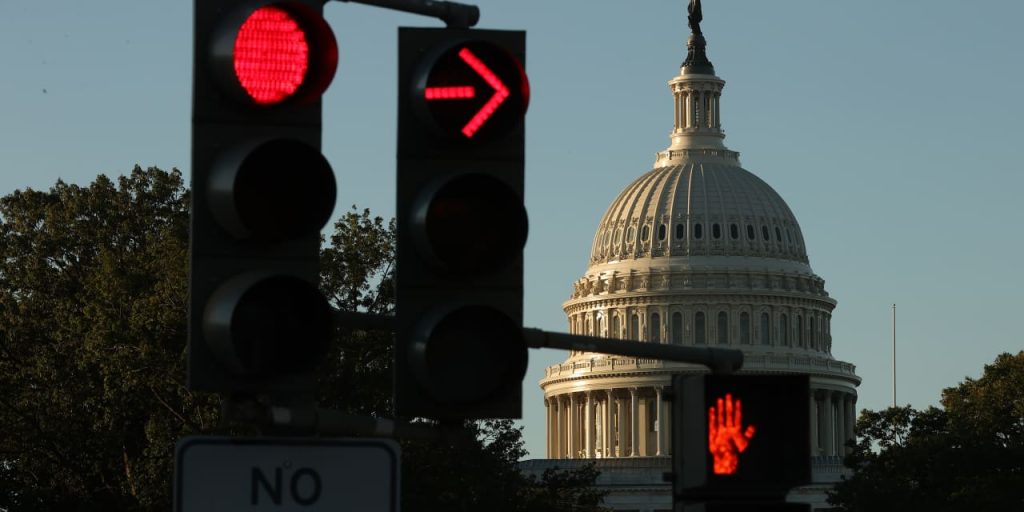A top official at the U.S. Chamber of Commerce on Thursday expressed alarm over the potential for a partial government shutdown next week, citing news that a key deal on spending levels might come undone.
House Speaker Mike Johnson, a Louisiana Republican, and Senate Majority Leader Chuck Schumer, a New York Democrat, reached a deal Sunday on top-line spending levels for the current fiscal year, leading analysts to sound more optimistic about whether a divided Congress could avoid a shutdown.
But hard-line House Republicans on Thursday said they were pushing Johnson to renegotiate the agreement. The speaker said he was having conversations but hadn’t made any commitments so far.
The developments didn’t sound encouraging to Neil Bradley, chief policy officer at the U.S. Chamber of Commerce, as he discussed the situation during a news conference related to his lobbying group’s annual State of American Business event.
“In terms of a shutdown, the news of the hour — that there may be efforts to revisit the deal that was just reached between the speaker and Leader Schumer and the minority leaders — is certainly disconcerting. We were already on a time crunch to be able to either get a [continuing resolution] done or get some spending bills done to avoid a government shutdown. Trying to reopen those negotiations, I think, certainly increases the odds” of a shutdown, Bradley said. A continuing resolution is a short-term measure that’s often used to extend funding and prevent closures.
The chamber plans to ramp up its warnings about how a shutdown would cause pain, Bradley said. The influential group ranked as the biggest spender on Washington lobbying in the first three quarters of 2023, with outlays of $50 million, according to an OpenSecrets.org analysis of disclosures.
“Almost everyone acknowledges on Capitol Hill that no one wins in a government shutdown. Everybody loses, and so I think you’ll hear the business community — you’ll certainly hear the chamber — stepping up that message of the real-world consequences for American families, American businesses, if there is a shutdown,” Bradley said. “Concern does seem to be growing.”
The Democratic-run Senate and Republican-controlled House of Representatives face a Jan. 19 deadline to make a funding deal that would prevent a partial shutdown. A two-tiered bill that Congress passed in November extended funding for some agencies and programs until Jan. 19, while continuing funding for others until Feb. 2.
U.S. stocks
SPX
DJIA
were trading slightly lower Thursday as investors assessed a hotter-than-expected reading on inflation.
Related: What do shutdowns mean for markets?
Read the full article here



